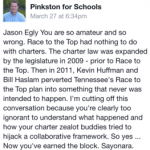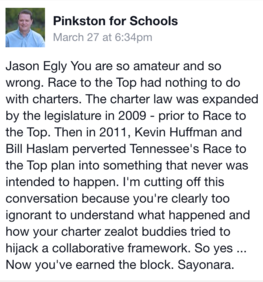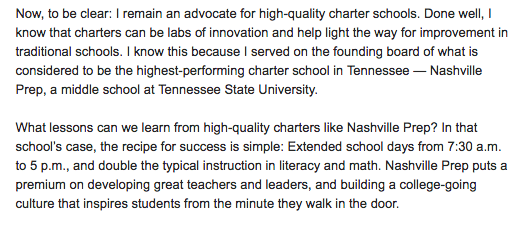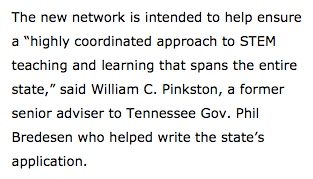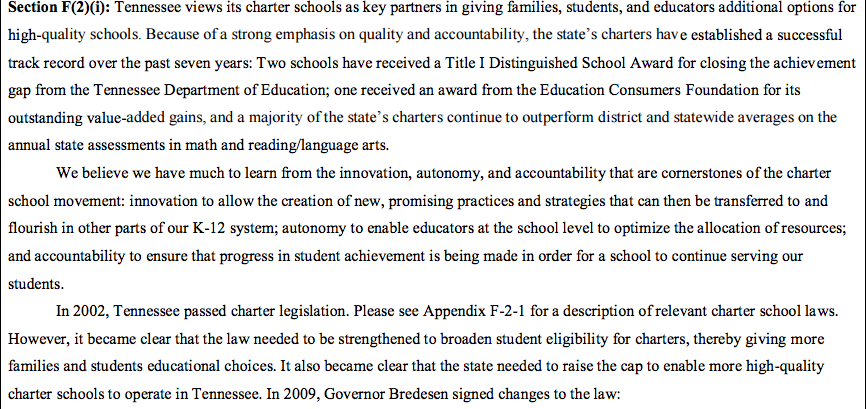I was sent a Facebook comment by Nashville School Board Member Will Pinkston in regards to the Race to the Top grant that Tennessee won in 2010. Pinkston claims that Race to the Top had nothing to do with charter schools. Race to the Top had everything to do with charter schools.
Before I break down the Race to the Top application, let’s revisit the Will Pinkston of 2013 after he was elected to the school board. In 2013, Pinkston praised Kevin Huffman and Bill Haslam for their work in continuing the reform started under Bredesen. Pinkston also endorsed Haslam in 2010, around the time he worked for Bill Frist’s State Collaborative on Reforming Education (SCORE).
Pinkston also advocated for charter schools.
I remembered that Will Pinkston as I read through the Race to the Top application that was submitted by the state of Tennessee. Let’s remember that Will Pinkston helped write the application while he worked for Governor Phil Bredesen.
You can read through the application here. The Race to the Top grant application mentions “charter school” 108 times. The Achievement School District was mentioned a lot in this grant application. Will Pinkston has said that he was in the room when the Achievement School District was created.
According to the grant application, the ASD would pull together an “unprecedented set of non-profits” to open charter schools in the ASD and other schools. The ASD was created, from the beginning, to partner with an unprecedented amount of charter schools.
 The application, which Will Pinkston helped write, gushed over how great charter schools are. It also shows how Tennessee wanted to use charter schools to help in the turnaround of failing schools. The application shows Tennessee’s love of charter schools by showing that Governor Bredesen signed an updated charter school law in 2009.
The application, which Will Pinkston helped write, gushed over how great charter schools are. It also shows how Tennessee wanted to use charter schools to help in the turnaround of failing schools. The application shows Tennessee’s love of charter schools by showing that Governor Bredesen signed an updated charter school law in 2009.
The application goes on to say that the state is actively recruiting charter school leaders to the state. While the state itself will help recruit, the ASD specifically will help charter schools find facilities in Tennessee.
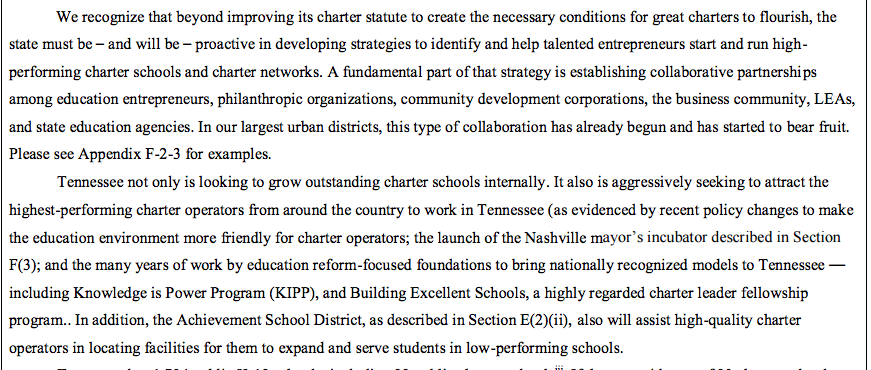 The current landscape of Tennessee’s charter schools was mapped out years ago in this Race to the Top application. The ASD has partnered with charter schools to help turnaround school districts and state and city leaders have gone out to recruit charter school leaders. We have seen both of those items happen right here in Nashville.
The current landscape of Tennessee’s charter schools was mapped out years ago in this Race to the Top application. The ASD has partnered with charter schools to help turnaround school districts and state and city leaders have gone out to recruit charter school leaders. We have seen both of those items happen right here in Nashville.
If we move back to the start of the application, we see that the application is pushing for more charter schools. The application reads, “In this application, we describe how the atmosphere in the state encourages fresh ways of thinking, opens the education market to charter schools…”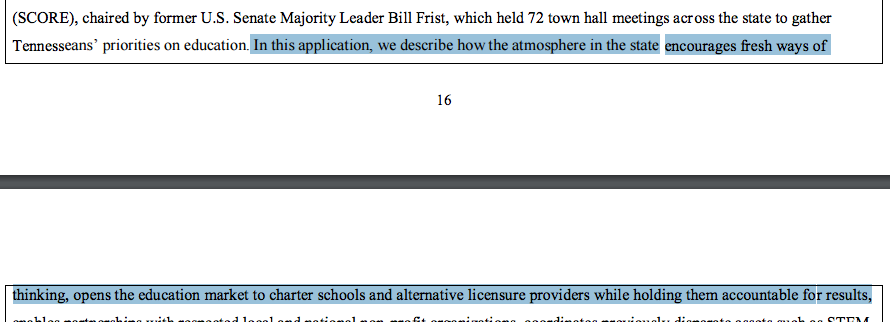
If the Race to the Top application had nothing to do with charters, why was so much of the application about charter schools? The state, and their grant writers, knew what they wanted. They wanted more charter schools in the state of Tennessee. They got their wish.
